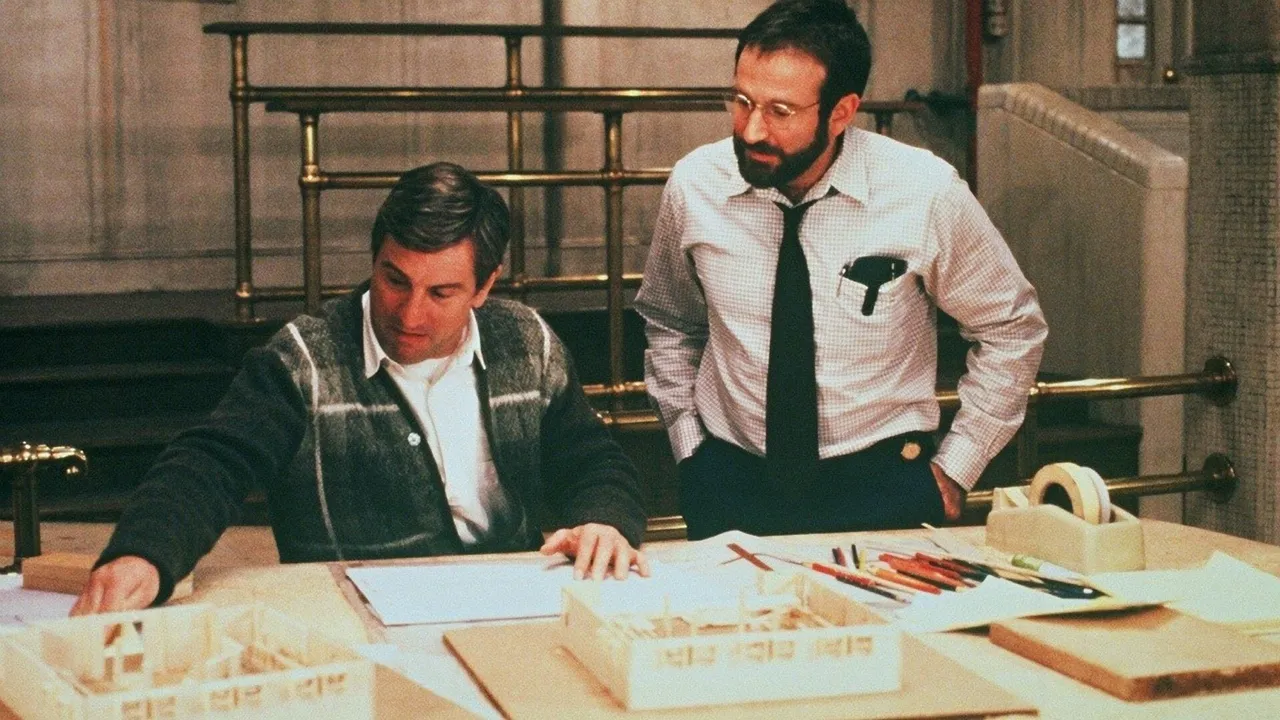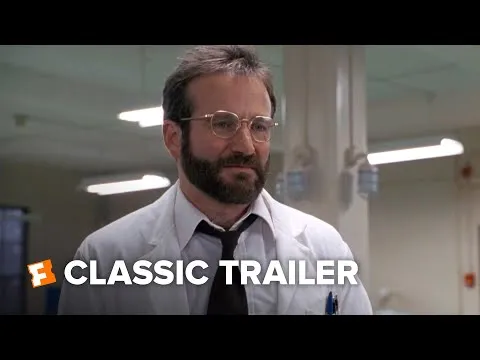
Physical and mental afflictions are viewed as an excellent opportunity for actors to show the true range of their skills and, as such, they became popular subject of “Oscar baits”. Many of such films, designed primarily to win prestigious awards, suffer because of the singularity of their purpose but, at times, there is sufficient skill in screenwriting or directing for some of them to go beyond such limitations. One such film is Awakening, 1990 drama directed by Penny Marshall.
The film is based on the eponymous 1973 book by Dr. Oliver Sacks, British neurologist who had it based on his own experiences at Beth Abraham Hospital in Bronx. His alter ego, played by Robin Williams, is named Dr. Malcolm Sayer and the plot begins in 1969 when he, rather reluctantly, accepts the job at the facility which treats various, often incurable, neurological disorders. Sayer becomes intrigued by number of patients that had spent decades in state of catatonia. He learns that they all developed symptoms after being suffering from encephalitis lethargica during 1920s epidemic in New York City. He also notices that some of those patients, who are otherwise unable to move or communicate with outside world, can momentarily react to outside stimuli. His further research also shows how patients’ symptoms look like those afflicted with Parkinson’s disease and he speculates that they could be treated with L-DOPA, drug successfully developed for that particular condition. He chooses patient Leonard Lowe (played by Robert De Niro) to start experimental treatment. The results are miraculous – Leonard is again able to talk, walk and after a while begins to look like a completely healthy person. Sayer administers the drug to other patients and they too wake up and, like Leonard, have to adapt to the world that changed beyond their imagination. However, miraculous drug also begins to show the side effects and Sayer is forced to work hard in order to prevent Leonard and other patients to regress back to their catatonic condition.
Sacks’ book, which was subject of British television documentary in 1974 and 1982 play by Harold Pinter, is given typical Hollywood treatment in this film. Depending on mood and world view, Awakenings can be seen either as powerful story that affirms hope, compassion, perseverance and message about enjoying little things healthy people take for granted or shameless emotional manipulation. However, even those who accept the latter view would probably agree that this is well-made film. Scriptwriter Steven Zaillian (who would later become one of biggest writers in Hollywood) skillfully simplifies complicated medical story into easily digestible two hours of drama. Penny Marshall, director whose specialty were comedies - including Big, another tale about boy suddenly thrown into the strange world of adults - shows that she could handle dramas, although her fondness for lighter content can be seen in middle section of film, when patients awoken face strange new world of 1969 thus creating plenty of humorous “fish out water” situations. Film mainly benefits from the strong cast, especially Robert De Niro, who plays his role of a boy in body of middle-aged man very well. De Niro has prepared for this by carefully studying real-life patients in Sacks’ hospital and the results of his efforts are quite impressive. Robin Williams, an actor associated with comedy, is also very good in dramatic role, giving rather subdued but convincing performance of a man who is, despite his scientific brilliance, socially awkward. The supporting cast is also good, especially Ruth Nelson in the role of Leonard’s elderly mother and Alice Drummond as Lucy, one of catatonic patients.
Awakenings, however, suffers because it strays too much from real life and succumbs to Hollywood conventions too easily. This happens with the introduction of Paula, character played by Penelope Ann Miller, whose single purpose is provide some sort of romantic subplot to this film. She begins something of a relationship with Leonard without proper chemistry or explanation how those two characters are bridge the huge gaps in their respective ages or how could beautiful woman like her could be attracted to middle-aged man in Leonard’s condition. In the second part, where Leonard’s condition worsens, film features scene in psychiatric ward which is somewhat too obviously copied from One Flew over the Cuckoo’s Nest, thus creating inevitable comparisons that go against Marshall’s films. But the most Hollywood aspect of the film is near the finale when Awakenings tries to give happy ending in form of Sayer finally removing shackles of his shyness and asking his nurse (played by Julie Kavner of Simpsons fame) for a date. That ending looks even more false in manipulative in light of real life tragic fate of Robin Williams, whose premature end came due to conditions very much like those depicted in the film. Despite those flaws, Awakenings is still well-made and at times fascinating film that deserves recommendation.
RATING: 6/10 (++)
Blog in Croatian https://draxblog.com
Blog in English https://draxreview.wordpress.com/
Leofinance blog @drax.leo
Cent profile https://beta.cent.co/@drax
Minds profile https://www.minds.com/drax_rp_nc
Uptrennd profile https://www.uptrennd.com/user/MTYzNA
Unstoppable Domains: https://unstoppabledomains.com/?ref=3fc23fc42c1b417
Hiveonboard: https://hiveonboard.com?ref=drax
Bitcoin Lightning HIVE donations: https://v4v.app/v1/lnurlp/qrcode/drax
Rising Star game: https://www.risingstargame.com?referrer=drax
1Inch: https://1inch.exchange/#/r/0x83823d8CCB74F828148258BB4457642124b1328e
BTC donations: 1EWxiMiP6iiG9rger3NuUSd6HByaxQWafG
ETH donations: 0xB305F144323b99e6f8b1d66f5D7DE78B498C32A7


